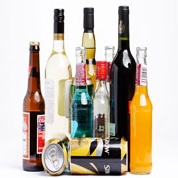Alcohol

Harm Reduction
The aim of harm reduction thinking in alcohol intake is to reduce the negative consequences that drinking may have on you both physically and mentally.
- Ask yourself why you drink? Do you feel insecure in company? Does it help you forget trauma? If the answer to any of this is an emphatic ‘yes’ then you may find you need some help with your drinking. Even if you know that alcohol makes you and many others feel more confident and less anxious, your drinking could be masking a problem that lead to a heavier more entrenched drinking pattern.
- Mixing alcohol with some drug types is very dangerous and never beneficial. Alcohol is a central nervous system depressant and mixing it with anxiolytics like diazepam can cause respiratory depression.
- Be aware that heavy drinking can cause you to alter perception and the boundaries of your usual behaviour and leave you vulnerable. If you do find you have drunk too much-tell a friend, keep near people you trust and don’t travel home alone.
- Many people suggest that it is better not to mix alcohol types particularly spirits.
- Ask yourself if you have a ritual around your drinking that causes you not to question your drinking levels.
- Change to a less potent regular drink (drink with a lower ABV)
- Have something to eat before/ while drinking
- Taking your time over your drink.
- Environment and company is important. Socialise outside heavy drinking circles. Competitive drinking can be risky and damaging. If you go out with a big crowd you may be expected to keep up.
- Have alcohol free days . Hydrate yourself, water and fruit juice are good. Give your liver a day off!
- Have a budget for the night - certain amount of cash/no cards.
- Regular drinking at home is not advisable. Be aware when you are drinking alone.
- Not playing or severely limiting getting involved in drinking games is sensible.
- Have smaller measures - 25ml instead of double, small glass of wine instead of large.
- Changing what you drink - type of drink/ less units e.g. 25ml vodka and tonic (1 unit) rather than large glass of wine (3 units) or 330ml bottle of Lager 3.8% (1.2 units) rather than pint of stronger lager (5%) (2.8 units).
- Decide how much you are going to drink on an evening and stick to it - think about commitments the next day e.g. children, work, driving.
- Alcohol can stay at detectable levels in your urine over night. This could get you a conviction, a ban or worse a prison sentence.
- When you drive a car or motorbike after a heavy drinking bout, or immediately after a moderate drink you might be endangering not just your life but the lives of others. You may have to live with the consequences of an accident even if you did not cause it. Ask if it is worth the risk.
- Think about how quickly you drink (more quickly than others?)
- Publicans are not daft- salty snacks/nuts may make you thirsty and drink more.
- Distance yourself from certain personal influences/ social situations where drinking is the norm.
- That last 150 mls in the bottle isn’t challenging you to drink it, if you don't feel like it -don't.
- Do you notice other people are making comments about your drinking?
- Do you get into fights /arguments? Is alcohol provoking an inner anger? Are you projecting your frustration onto others?
